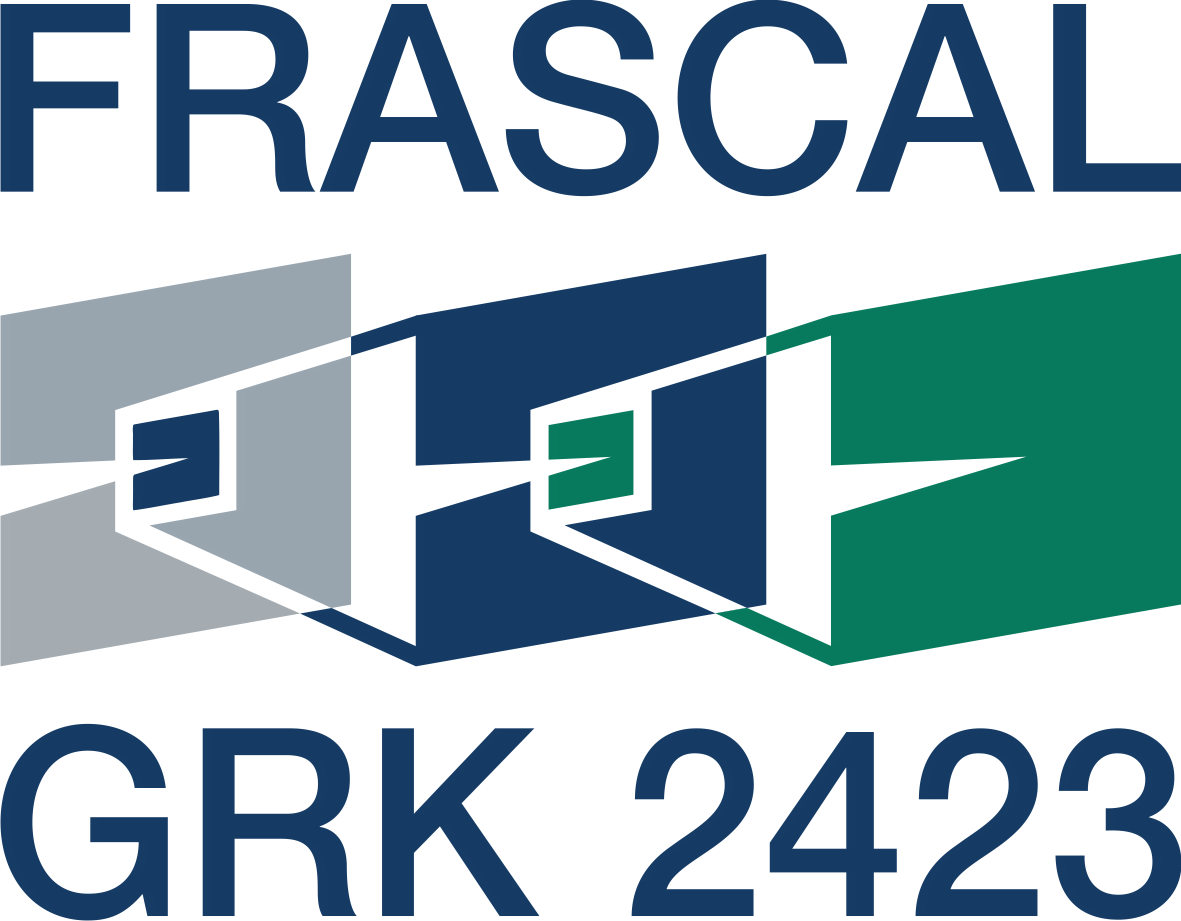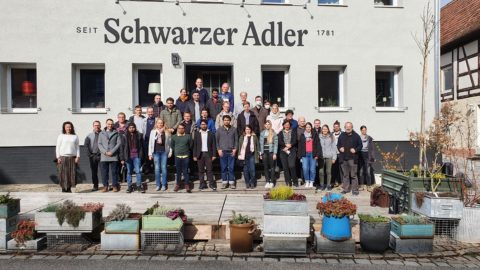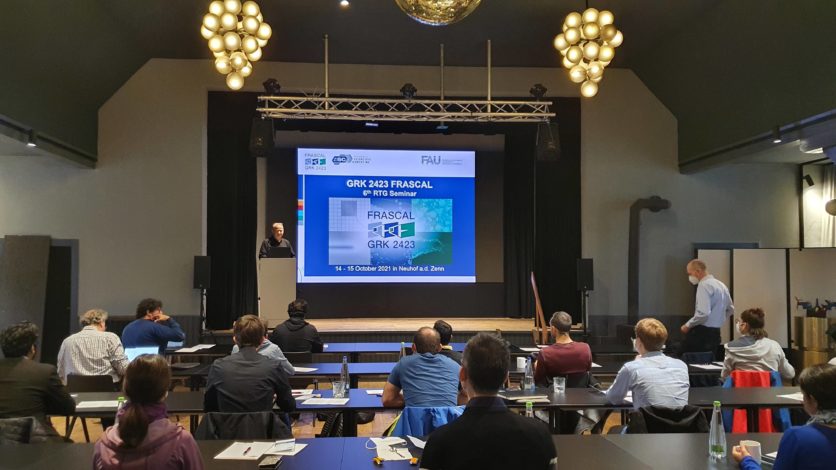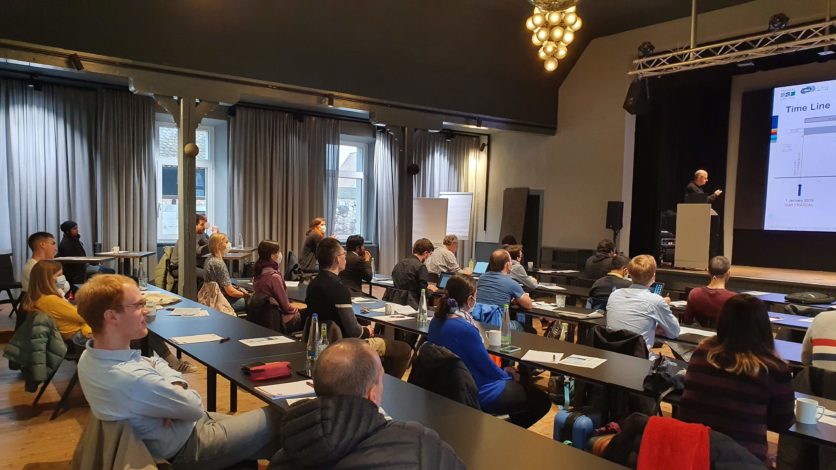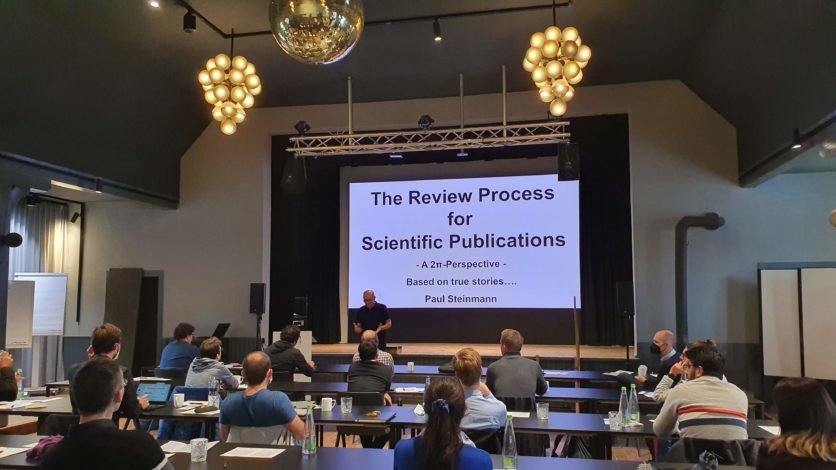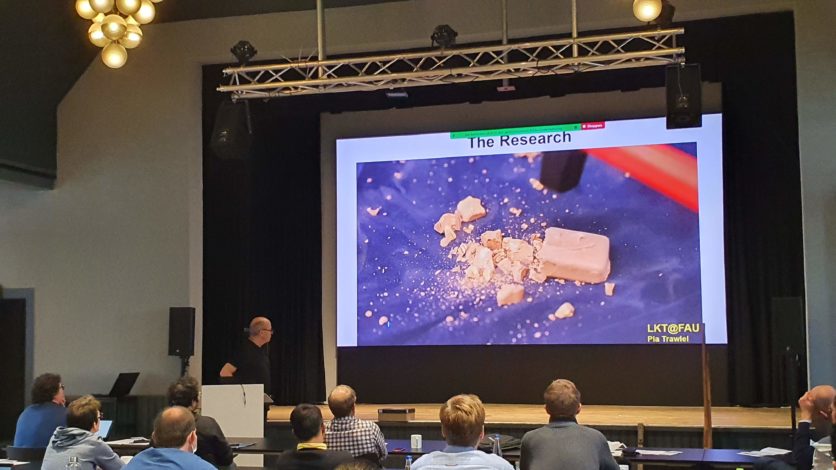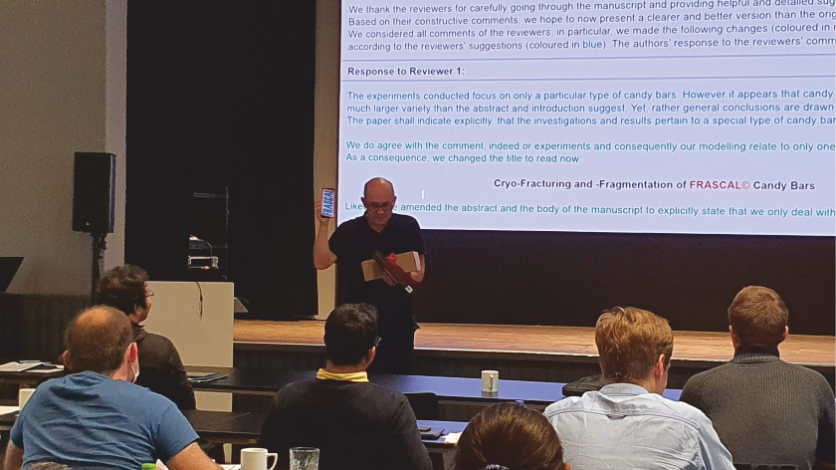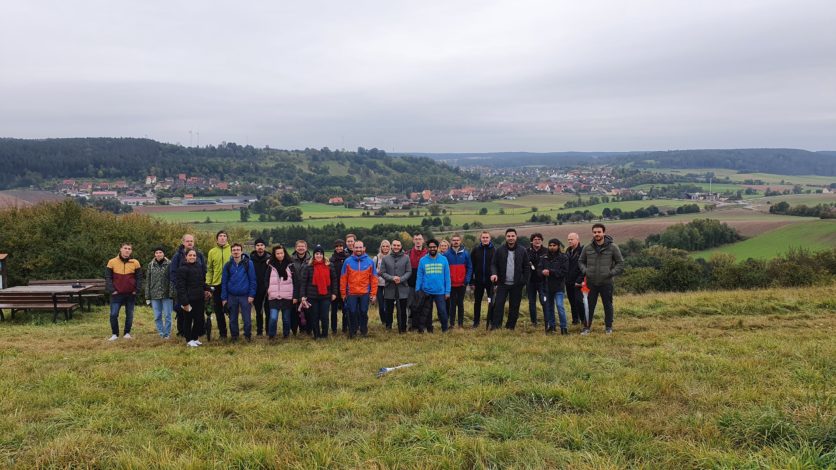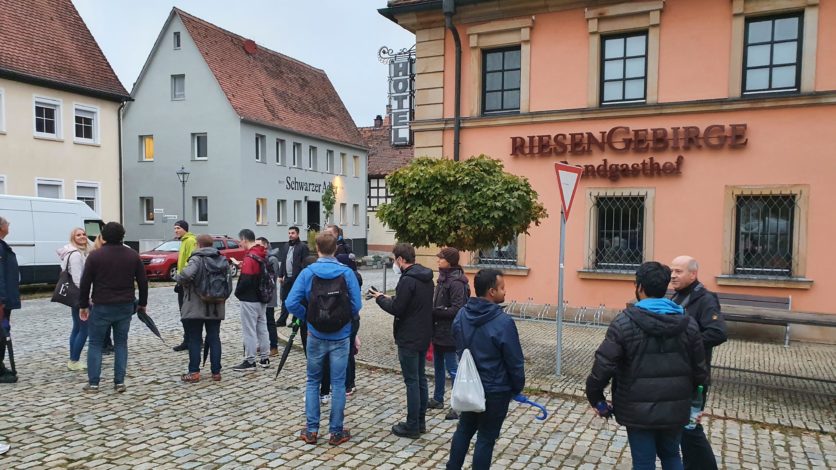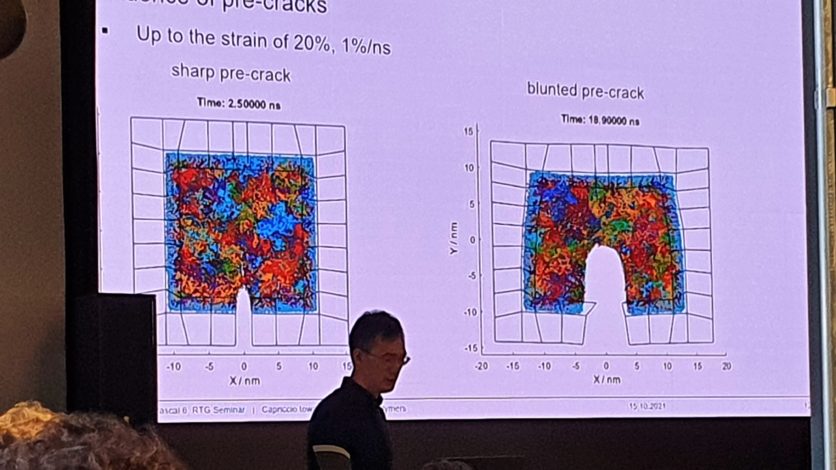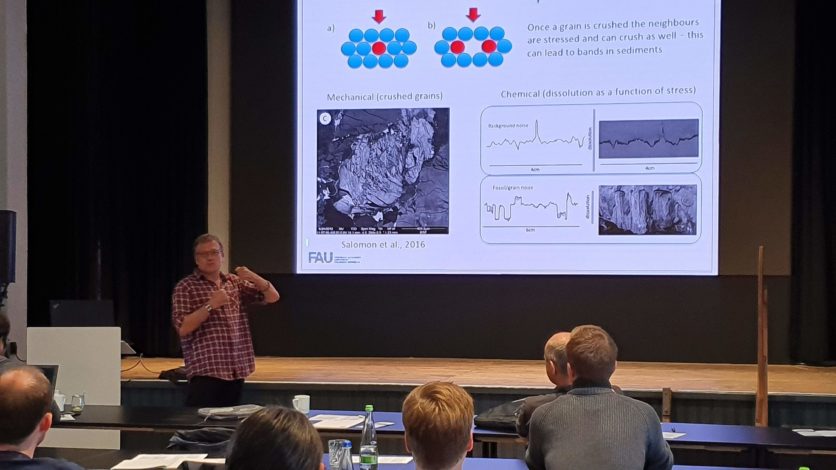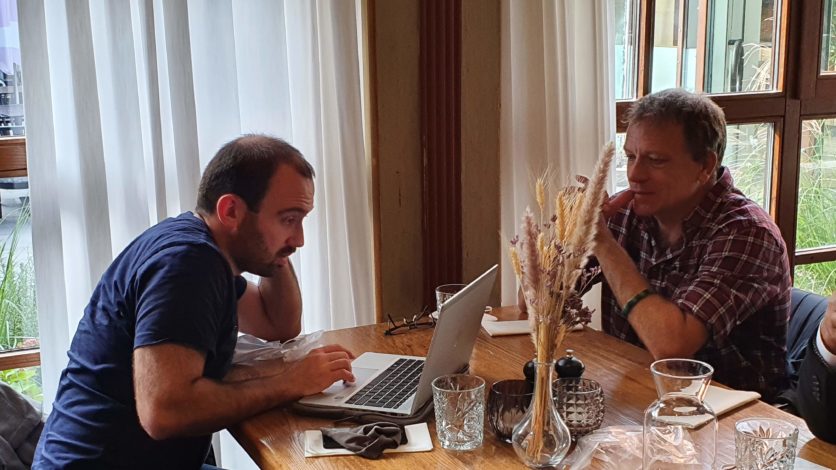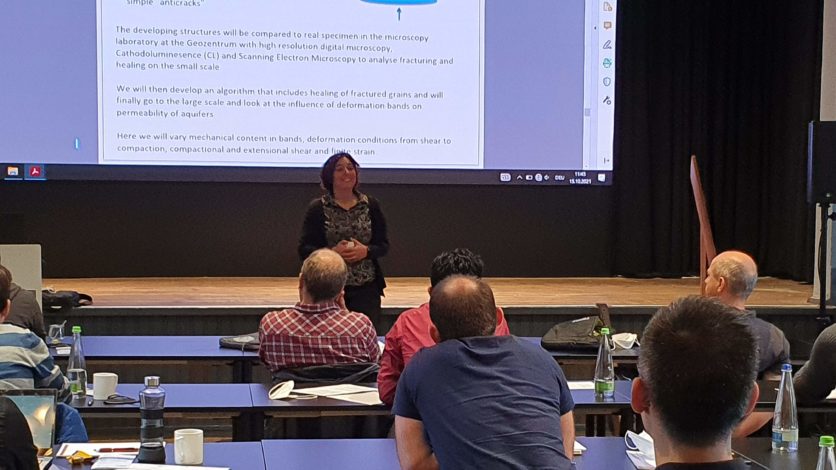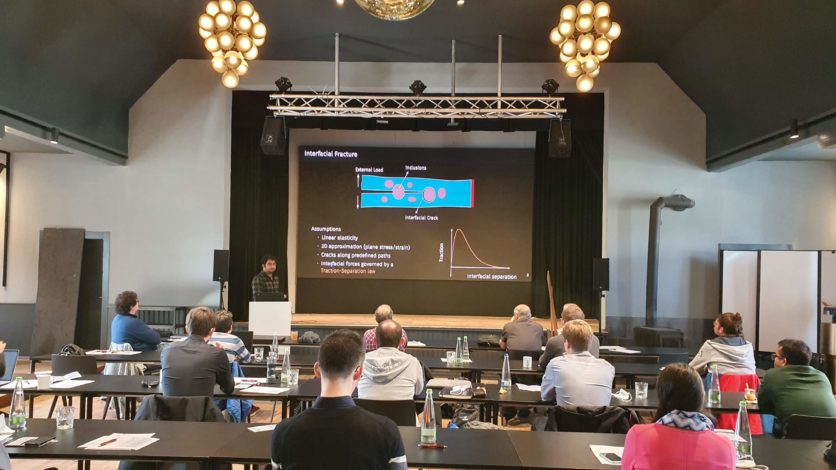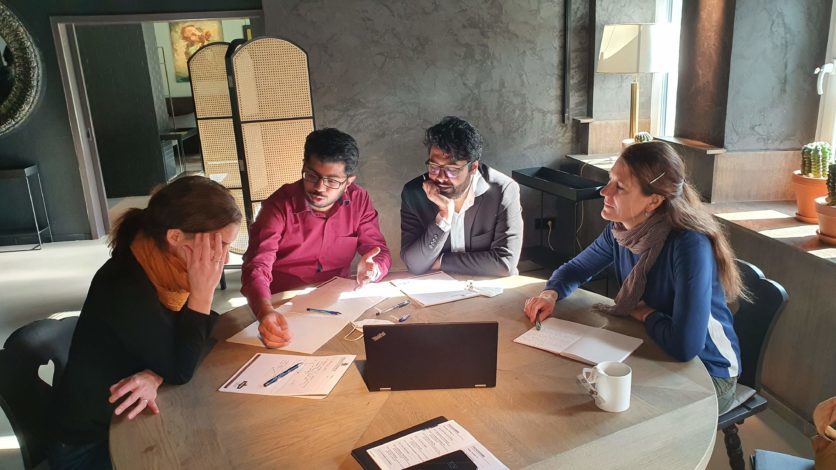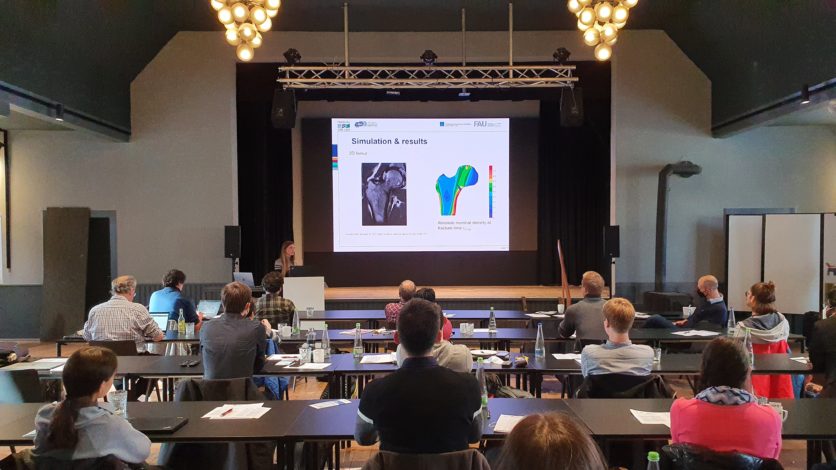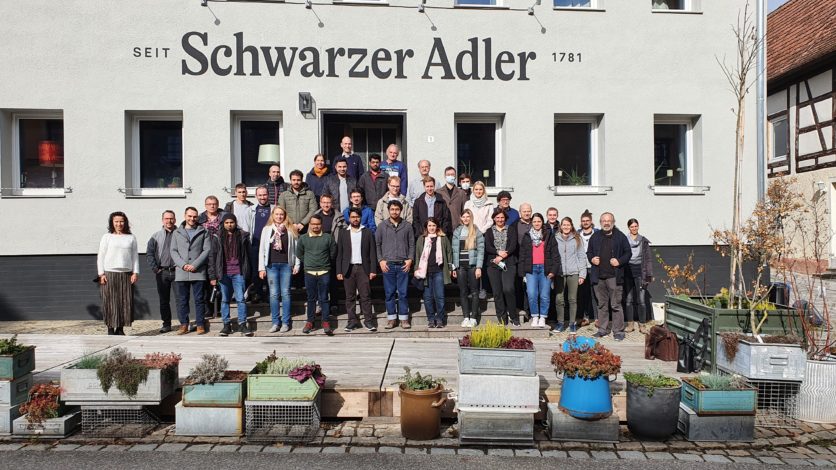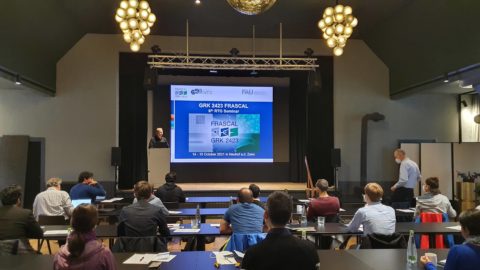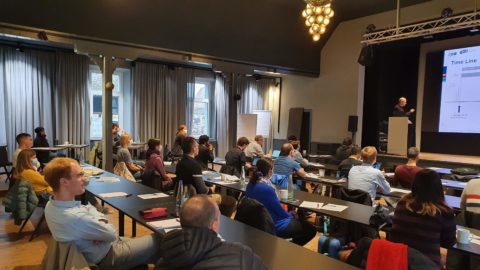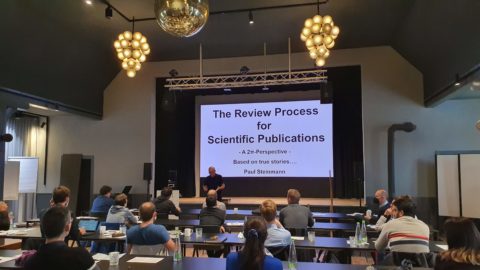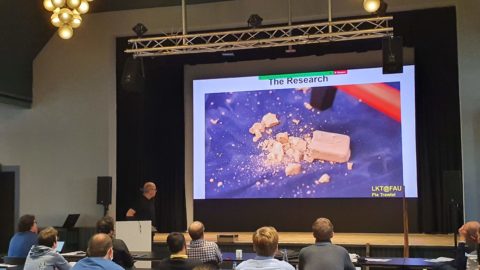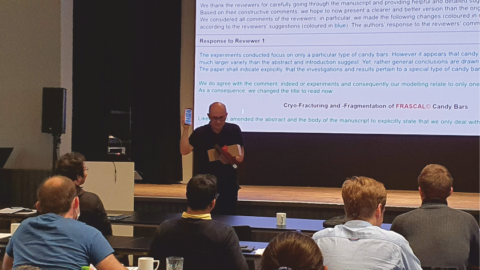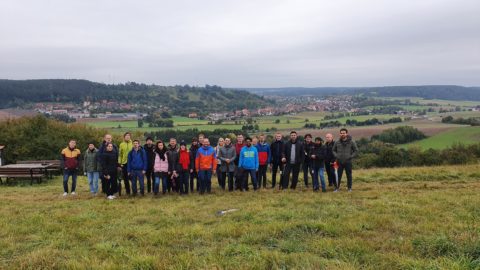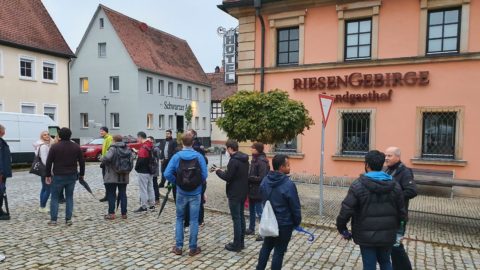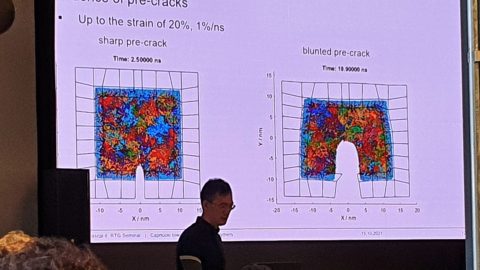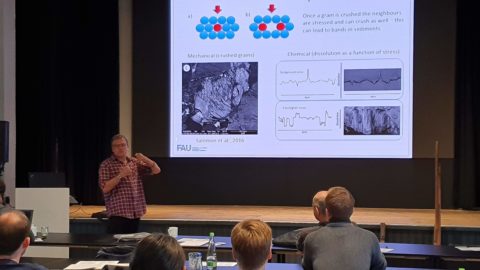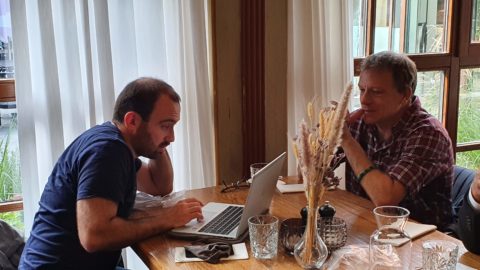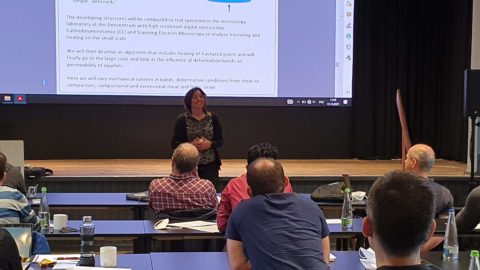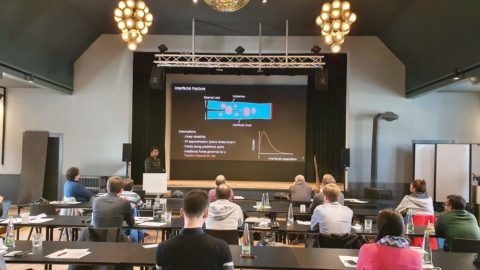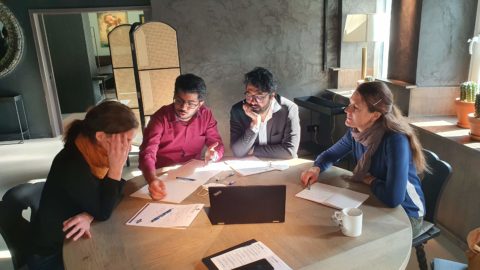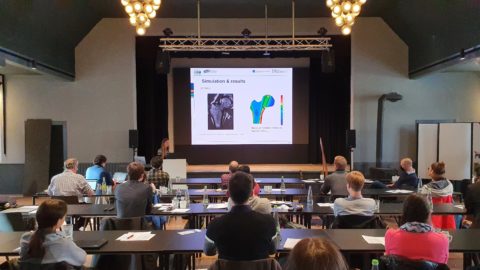6th RTG Seminar on 14 and 15 October 2021 in Neuhof a.d. Zenn
On 14 and 15 October 2021, all members of the GRK 2423 FRASCAL met for the 6th RTG Seminar at the Hotel Riesengebirge in Neuhof an der Zenn.
As usual at our biannual RTG seminars, all FRASCAL doctoral researchers, the Post Doc and this time even four of the associated doctoral researchers each gave a talk on their latest research results. The progress of the young researchers compared to the last RTG seminar was very remarkable and clearly visible in all of them! Here you will find the programme.
However, the doctoral researchers not only presented their latest scientific results, but also took turns moderating all the sessions. They all solved this task with excellence and ensured that each of the numerous presentations, including discussion, remained on time during the two days and that the schedule was always kept to in an exemplary manner.
A very warm welcome was given to Prof. Dr. Daniel Koehn, who will lead a new subproject in the GRK 2423 FRASCAL entitled: “Modelling of fragmentation and fracturing processes in deformation bands and faults, from single grains to seismic-scale faults” from 1. January 2022. He presented this project in a lecture on the second day of the seminar. This project will significantly extend the length scale considered in GRK 2423 FRASCAL, so to speak FRASCAL, Fracture across Scales – from quantum to geological (!) scales. We are very pleased to welcome Daniel Koehn as a new member of FRASCAL!
Since the doctoral researchers of the first cohort of the Research Training Group are almost at the end of their doctoral thesis phase and therefore (have to) think about their professional career after the after the dissertation, another block was reserved at the seminar – divided between the two seminar days – in which the Principal Advisors Julia Mergheim, Paul Steinmann and Ana-Sunčana Smith presented their professional careers in a lively, impressive and entertaining way, using their very different and exciting CVs as examples. In doing so, they wanted to show the doctoral students that there are very different paths to an academic career and that one can take various, sometimes unplanned, forks in the road and still successfully reach one’s destination.
A particular highlight of the RTG seminar was a short workshop by Paul Steinmann entitled „Peer Review – from the perspective of the editor, the reviewer and the author“. In it, he very imaginatively and humorously explained the peer review process of a scientific publication using a very illustrative example, the cryo-fracturing and -fragmentation of candy bars (fictional authors: Kurt Kaltbrecher and Vera von der Suess). He explained the entire process from the scientific idea and experiment through the preparation of a manuscript to the accepted publication. From the time of submission, the review process of the manuscript was considered from the perspective of the scientist, the editor, and the reviewer. Among other things, the questions were to which journal the publication should be submitted at all, how this works technically, which reviewers the editor should invite, how the reviewer proceeds professionally and technically, how long such a review process takes, and how the author should deal with criticism or rejection of his or her paper. And finally, it was explained how the confirmation of acceptance of a paper looks like and when and how the author receives the proofs of the article. At the end of the workshop, to the surprise of the participants, everyone received a sample of the chocolate bar that plays a central role in the publication, a so-called FRASCAL chocolate bar.
After sitting in the seminar room for a long time and listening attentively to the lectures, it felt good to continue the discussions about science, but also about other important things in life, in small groups quite casually on a hike. We were rewarded with a beautiful view of the autumnal Zenn valley and a small refreshment consisting of drinks and buttered pretzels, with which the hotel staff had surprised us in the middle of the path.
It was highly pleasing that with Marie Laurien, Maurice Rohracker and Felix Weber, three potential doctoral researchers of the 2nd cohort of FRASCAL (start: 1 January 2022) were already present and could thus make first contacts and informally inform themselves about a doctorate in a Research Training Group. At the next, the 7th RTG seminar, the entire second cohort of FRASCAL doctoral researchers will then be present and report on their first results …
